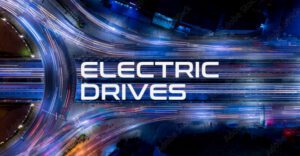Hyundai Motor Company has today unveiled a strategic roadmap to accelerate its electrification ambition as it pursues sustainable progress for the company. Jaehoon Chang, Hyundai Motor president and CEO, and other executives presented the plans to shareholders and investors at the ‘2022 CEO Investor Day’ virtual forum.
During the online event, the company also unveiled targets for sales and financial performance to be achieved by 2030. The company said the roadmap for Hyundai’s battery electric vehicles (BEVs) is being supported by strengthening battery electric vehicle (BEV) line-ups, optimising manufacturing capacity and securing hardware and software competitiveness.
Under the plan, the company aims to boost annual global BEV sales to 1.87 million units and secure a seven percent level of global market share by 2030. This is a raised target from Hyundai’s previously announced 560,000 units by 2025.
The company has earmarked KRW 95.5 trillion (£59 billion/$79 billion/€71 billion) of investment for future businesses by 2030, including KRW 19.4 trillion (£12 billion/$14.5 billion/€16 billion) for electrification and KRW 12 trillion for software capabilities.
Jaehoon Chang, Hyundai Motor president and CEO, said: “Hyundai is successfully accelerating its transition to electrification and becoming a global leader in EVs despite a challenging business environment caused by the global chip shortage and ongoing pandemic.
“Along with our seamless efforts to improve EV value, Hyundai Motor will continue to secure its business sustainability as a ‘Mobility Solutions Provider’ through advanced technologies of not only hardware but also software.”

During the forum, Hyundai announced it has raised the annual BEV sales target to 1.87 million units by 2030 from the previously announced 560,000 units by 2025. The company aims to take a 7 percent market share in the overall global BEV market.
Hyundai plans to introduce 17 battery electric vehicle models including 11 Hyundai marque models along with six models from its Genesis luxury brand by 2030 as it seeks to expand its BEV spectrum.
The new Hyundai BEV models will include three sedan models, six SUVs, one light commercial vehicle as well as one new type model. This year, Hyundai begins sales of IONIQ 6 and this will be followed by IONIQ 7 in 2024.
The Genesis luxury brand BEV line-up currently consists of two passenger cars and four SUVs, including the Electrified GV70 launching this year. Starting in 2025, all newly launched models from Genesis will be electrified.
Hyundai also explained that it aims to establish a high efficiency manufacturing process for BEV production to accelerate its transition into electrification. Hyundai Motor Global Innovation Center in Singapore (HMGICS), the cornerstone for innovation in the company’s mobility value chain, will build a human-centred manufacturing innovation platform.

The platform is expected to bring dramatic innovation in production efficiency through a flexible production system, advanced level automation and digital twin technology. The innovation will be expanded to global plants in the future.
Beyond existing BEV production facilities centred in Korea and the Czech Republic, Hyundai plans to gradually expand its BEV manufacturing bases, starting with an Indonesian plant that recently started operation. The Indonesian plant will start BEV production this year to help expand production volume.
As BEV production bases expand, the company is trying to increase the local procurement rate of batteries through strategic alliances with battery companies in major regions, including the US, to secure sufficient battery supply. Through these alliances, the company expects to obtain more than 50 percent of its next-generation lithium batteries for BEVs starting in 2025.
In addition, Hyundai will also diversify battery sourcing to consolidate the competitiveness of future BEVs. The company has secured sufficient battery supply to meet its sales targets by 2023. Hyundai plans to continue cooperation with various battery companies with an aim of securing 170GWh of batteries for its models, including Genesis luxury brand by 2030.
Regarding the next-generation batteries, such as solid-state batteries, Hyundai is cooperating with various global partners to improve energy density and cost efficiency.
Hyundai will also introduce an Integrated Modular Architecture (IMA), evolved from the electric global modular platform (E-GMP) that is the foundation of IONIQ 5 and GV60, successfully launched in 2021.

The IMA will be utilised not only to as Hyundai Motor’s passenger BEV platform but also as its exclusive purpose-built vehicle (PBV) platform, helping to streamline production processes and reduce cost.

The IMA is being developed to standardise not only a chassis but also a battery system and motor. The innovative architecture can be used for BEV models in all segments, improving the driving range.
Unlike the existing BEV development system, which has different types of battery packs for each model, IMA can be equipped with standardised battery packs to attach flexibly regardless of the model to improve cost efficiency. Through the cell-to-pack system, the new architecture can secure sufficient energy density and shorten charging time.
Five type of standardised motors will also be installed on IMA according to model needs. This modular motor system can secure competitiveness in terms of cost and weight as well as motor efficiency.




